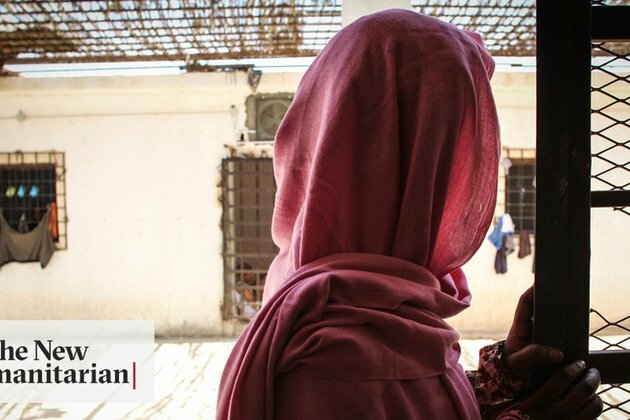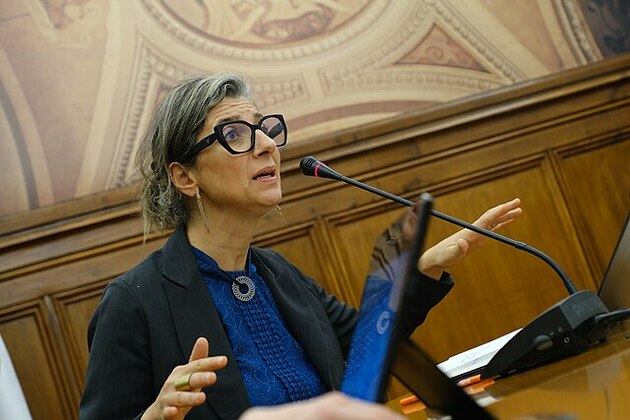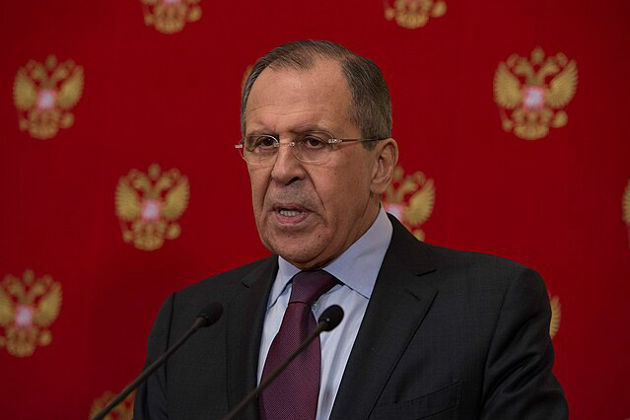Who will help the 600,000 migrants and refugees in Libya
The New Humanitarian
18 Apr 2019, 17:46 GMT+10

As Libya once again slides towards civil war, the European Union may not be able to turn a blind eye towards the more than 600,000 migrants and refugees in the country.
It may not have a choice: If thousands of people try to flee Libya due to the violence that has engulfed the capital, the EUs current strategy of keeping migration from the country to a minimum will be torpedoed. That will force the international community to choose from the best of a bunch of bad options to get people out, and fast.
The truth is that protecting Libyas migrants and refugees will require courageous political decisions. Anything less might look like Europeans deserted the stage when it was their turn to act. But with European elections just around the corner in May, few politicians are likely to risk any high-profile action that could be portrayed as weak on migration.
Of the 600,000-plus migrants and refugees in Libya, and despite some emergency relocations in the past few days, around 2,700 people most from sub-Saharan Africa are said to still be trapped in detention centres near the front lines of the ongoing battle for Tripoli.
Across the country, more than 6,000 people are believed to be crammed into these centres some run by groups associated with the militias fighting for control of the capital and the country.
The abuses they suffer in detention have been widely documented, and the assistance provided by aid organisations in jails is largely insufficient.
What can be done?
On the face of it, none of the options for quickly getting the most vulnerable migrants and refugees out of Libya seem practical or realistic.
Some Libya-watchers believe Niger would be the likely destination for evacuations, possibly led by the UNs International Organisation for Migration (IOM) or its refugee agency, UNHCR.
This process has already begun on a limited scale: since CNN published evidence of slave markets in Libya in 2017, IOM and UNHCR say they have airlifted more than 2,600 migrants and refugees from Libya to Niger.
But Nigerien officials are unlikely to welcome a new influx of migrants. The country has already done its share to help Europe in recent years, from increased border management in the north to tackling smuggling networks in the migration hub of Agadez.
Niger has previously tolerated humanitarian evacuations from Libya on the understanding that these migrants would be resettled to Europe or return home at the same time as the country was given nearly 300,000 euros of assistance from the EU Emergency Trust Fund for Africa. Nevertheless, Nigerien authorities have halted the process several times, complaining that European countries are not pulling their weight.
Tunisia could provide a less arduous exit point. After previous crises in Libya in 2011 and 2014, several hundred thousand people fled across the border from Libya. While Tunisians welcomed the newcomers back then, their country now has a sluggish economy and many Tunisians are disillusioned with all the reforms instituted since the revolution in 2011. Now may not be the best time to test Tunisias solidarity.
Where else?
If these countries need to be bypassed, IOM and UNHCR could also attempt to run evacuations directly to Europe or, most probably, elsewhere. This has already been tested, as IOM has taken 28,000 migrants out of Libya since 2017, mostly to their home countries. As for UNHCR, it recently opened an emergency transit centre in Tripoli and has sent a few hundred refugees to Europe in recent months.
The movements of smaller numbers have worked in the past, but mass evacuations of the scale needed would be a political and logistical nightmare, requiring charter flights from a country whose airports are already under attack not to mention the intricacies of quickly assessing the nationalities of thousands of migrants and ensuring the cooperation of whichever government or militia happens to be in charge.
Presuming all these logistical difficulties could be overcome, the key issue remains the final destination of these migrants and refugees. Would they go directly to Europe? Or to their home countries?
Some European states might see hosting more migrants and refugees as a way to broker good relations with whoever ends up running a future Libyan government: the country is oil-rich and strategically located between the Middle East, Africa, and Europe (via the Mediterranean).
Italy showed how this kind of operation might work on a small scale, airlifting more than 150 people out of Libya to Rome in 2017.
Nevertheless, if many people need to get out of Libya at speed, its likely a mix of all these options would have to come into play.
Ultimately, the current crisis raises grave questions over the EUs migration partnerships with its neighbours. Europeans have invested heavily in training and equipping the Libyan Coast Guard to keep departures from the country down, but this strategy no longer looks fit for purpose, and its high time for a roots-and-branch review.
(TOP PHOTO: Survivors of a 1 September 2018 shipwreck off the Libyan coast at a detention centre some 120 kilometres east of Tripoli.)
cll/as/ag
 Share
Share
 Tweet
Tweet
 Share
Share
 Flip
Flip
 Email
Email
Watch latest videos
Subscribe and Follow
Get a daily dose of Colorado Star news through our daily email, its complimentary and keeps you fully up to date with world and business news as well.
News RELEASES
Publish news of your business, community or sports group, personnel appointments, major event and more by submitting a news release to Colorado Star.
More InformationInternational Business
SectionShein hit with 40 million euro fine in France over deceptive discounts
PARIS, France: Fast-fashion giant Shein has been fined 40 million euros by France's antitrust authority over deceptive discount practices...
Over 60 companies named in UN report on Israel-Gaza conflict
GENEVA, Switzerland: A new United Nations report alleges that dozens of global corporations are profiting from and helping sustain...
Persson family steps up H&M share purchases, sparks buyout talk
LONDON/STOCKHOLM: The Persson family is ramping up its investment in the H&M fashion empire, fueling renewed speculation about a potential...
Australian PM rejects US pressure to ease biosecurity rules
SYDNEY, Australia: Australia will not ease its strict biosecurity rules during trade talks with the United States, Prime Minister Anthony...
Haryana to develop Asia's largest jungle safari in Aravalli Hills
New Delhi [India], July 6 (ANI): A grand jungle safari project coming up in the Aravalli Hills is going to redefine Haryana's identity....
"Every flight feels heavier now....": Raashii Khanna says she finds it hard to travel after Air India tragedy
Mumbai (Maharashtra) [India], July 6 (ANI): The tragic Air India crash in Ahmedabad last month has left many shaken, including actor...
US
SectionMoscow removes Taliban from banned list, grants official status
MOSCOW, Russia: This week, Russia became the first country to officially recognize the Taliban as the government of Afghanistan since...
US debt limit raised, but spending bill fuels fiscal concerns
NEW YORK CITY, New York: With just weeks to spare before a potential government default, U.S. lawmakers passed a sweeping tax and spending...
Netanyahu vows 'No Hamas' in postwar Gaza amid peace talks
CAIRO, Egypt: This week, both Hamas and Israel shared their views ahead of expected peace talks about a new U.S.-backed ceasefire plan....
Meta hires SSI CEO Gross as AI race intensifies among tech giants
PALO ALTO/TEL AVIV: The battle for top AI talent has claimed another high-profile casualty—this time at Safe Superintelligence (SSI),...
US sends message by publicizing visa ban on UK punk-rap band
WASHINGTON, D.C.: The Trump administration has made public a visa decision that would usually be kept private. It did this to send...
Engine defect prompts Nissan to recall over 443,000 vehicles
FRANKLIN, Tennessee: Hundreds of thousands of Nissan and Infiniti vehicles are being recalled across the United States due to a potential...













